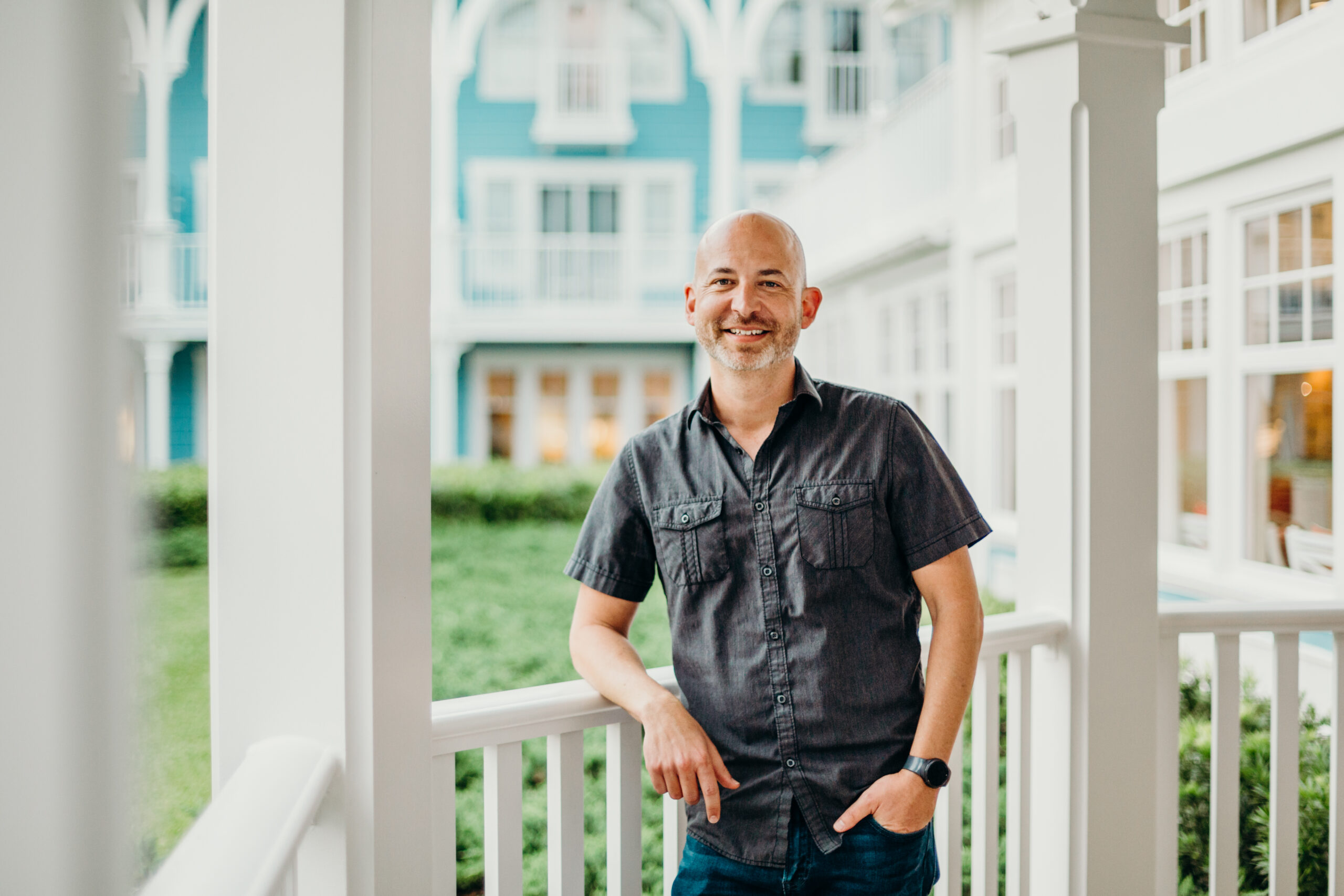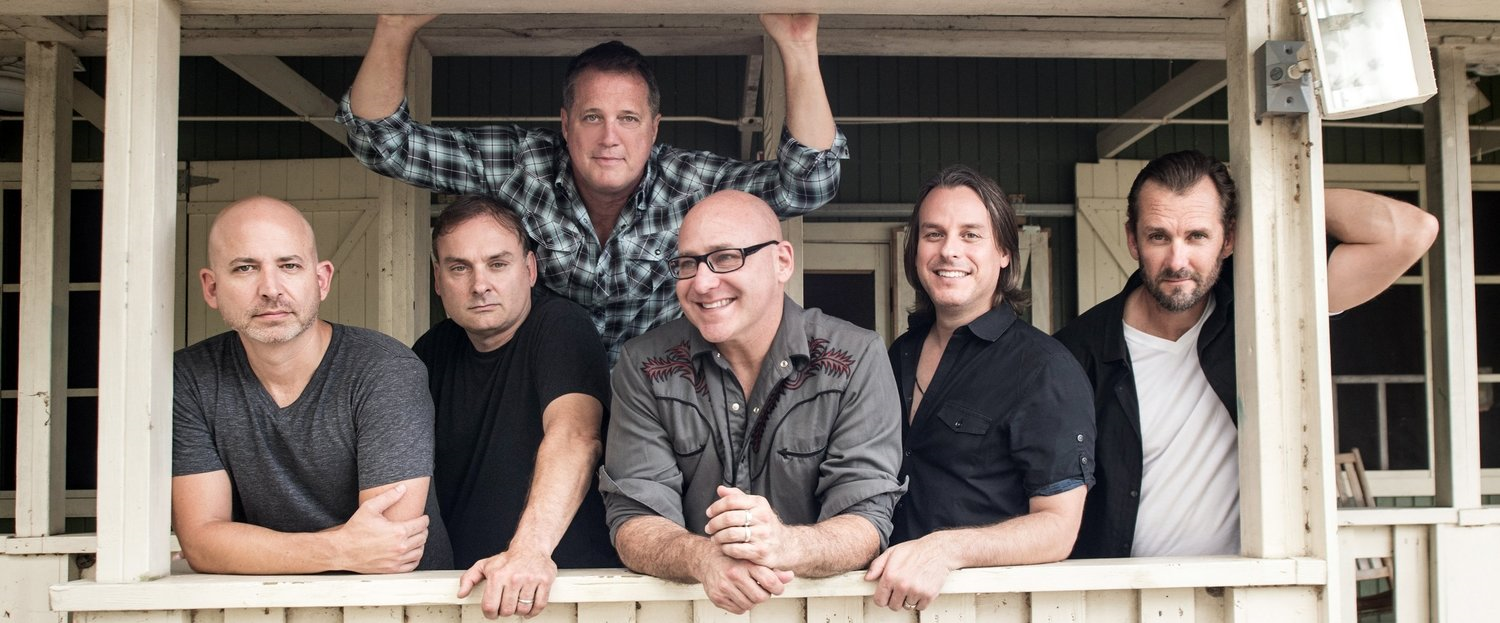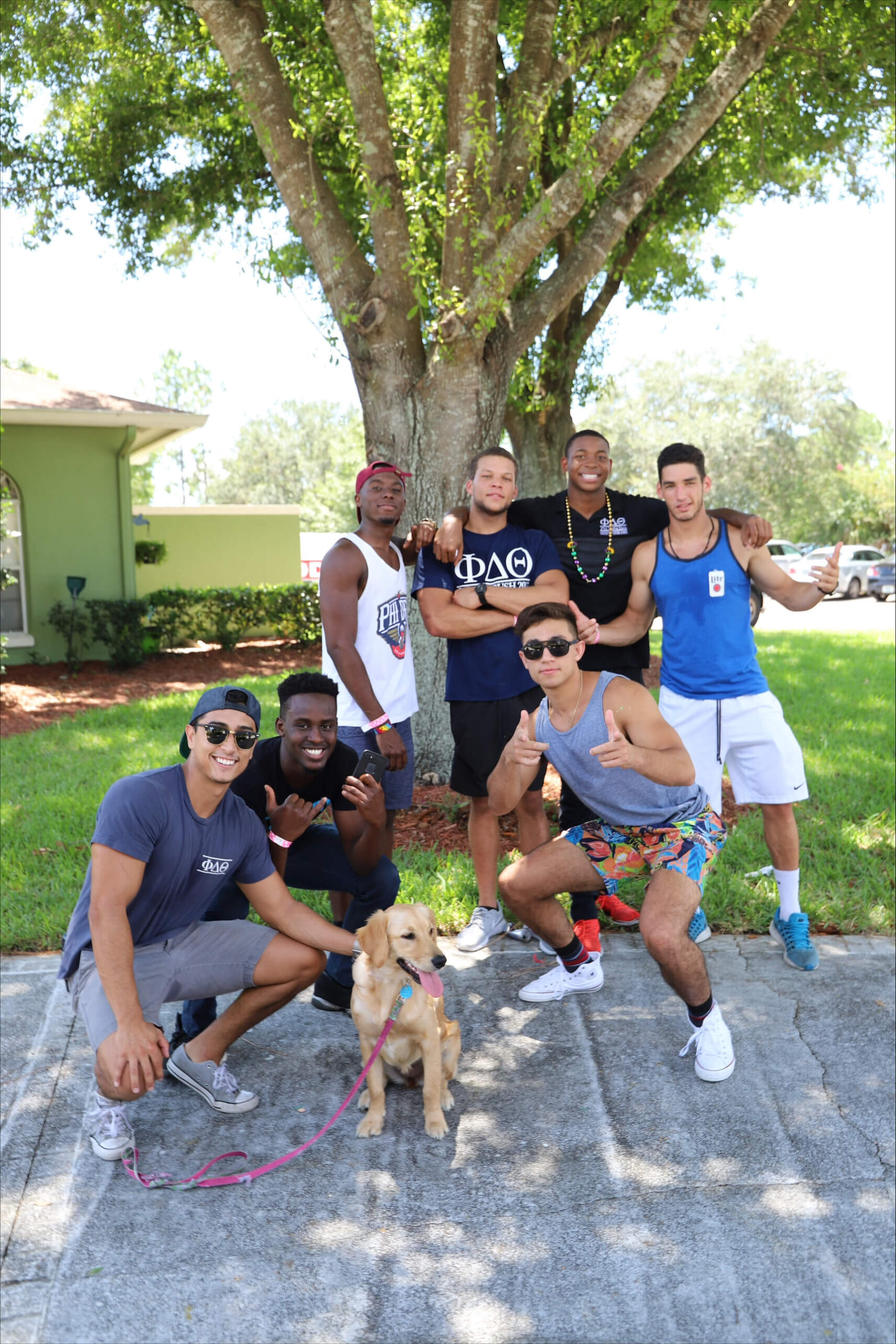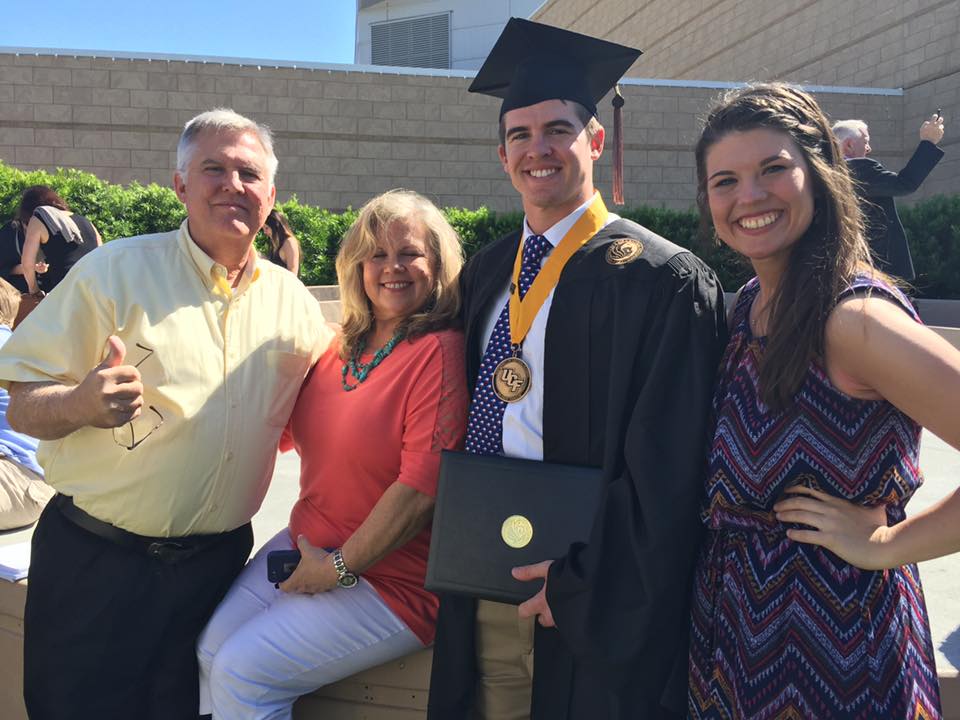Music Education Alumnus Goes From the Classroom to Onstage With Sister Hazel

In 2012, Dave LaGrande ’01 answered his ringing phone and was asked if he could play one (1) show with the alternative rock band, Sister Hazel. It’s seven (7) years, six (6) albums and countless (countless) shows later and this week LaGrande will be playing at the House of Blues with the band.
Growing up in Englewood, FL with a mother and a grandfather who were avidly musical, LaGrande picked up piano-playing early in life. He even goes so far as to say he doesn’t remember learning how to play the piano, it was just something he seemingly always knew how to do.
By high school, LaGrande was actively taking music classes and, once he could drive himself, he was getting gigs at bars and restaurants.
“I was playing in these places that I wouldn’t ordinarily even be allowed to go into,” he says.
After high school graduation, LaGrande attended State College of Florida, Manatee-Sarasota and majored in music with a dash of education mixed in. The impact a band director made on LaGrande during his adolescence runs deep; throughout his career, one of the constants is teaching music and being an advocate for arts education, whether a student intends to pursue it as a career or not.
“It gives people an avenue to be creative and do something just for the enjoyment of it,” he says.
LaGrande transferred to UCF in 1998, and decided that, in addition to piano, he’d take up the saxophone.
“I was playing piano all the time and was making money doing it, but I had always loved the saxophone,” he says. “So one day I just was like ‘man, I’d love to be a really good sax player.’ And so I pursued it and now it’s just one more helpful thing when I want to secure work.”
LaGrande put himself through school and was consistently playing gigs. He eventually got in with a corporate band that played top 40 covers at weddings and office parties. At one point LaGrande’s friend, Jeff, who was leading the band, mentioned that they needed a marketing guy. Oh, and also someone who can book the band. But, wait, we still need our sax/piano player.
“It really quickly became that I was playing the gigs, booking the band’s gigs, and also getting a weekly salary to handle our marketing. So, yeah, I was wearing some different hats,” LaGrande says.
LaGrande has a lot of stories like that. Good piano player since childhood, but hey why not tinker around with this saxophone? Playing in a successful band, but what would it be like to also do some behind-the-scenes things, too? It all comes back to the value he places on being versatile.
“I definitely try to be versatile, but also I don’t want to be a jack of all trades and a master of none,” he says. “So I really try to focus on at least a couple different things that I know I can do well, but then not be afraid to pick up new tricks along the way. I want to always have something ready to go, something to offer.”
By the time LaGrande arrived at UCF, he had already knocked out most of his general-education courses, allowing him to focus on music and music-education. LaGrande says his UCF experience prepared him both from a music perspective and from just a life-challenges-exist perspective.
“College is a set of hurdles and hoops and challenges,” he says. “UCF is structured to not only prepare you for your field, but to prepare you for what may come after college.”
When he graduated in 2001 with his bachelor’s in music education, he was certified to teach instrumental music to K-12 students, and he quickly landed a job as a band director at Gamble Rogers Middle School in St. Augustine, FL.
“Kids that age are like sponges; if you can get their attention long enough you can really teach them something valuable that has the potential to stay with them for life,” he says.
During his time teaching music, LaGrande was able to transform the music program at the school and create a meaningful and lasting impression on four school-years-worth of young musical minds.
In 2007, after a handful of years LaGrande describes as “having my personal life on a roller coaster of sorts,” it was time for a clean slate and that clean slate was to be found in Nashville, TN. This clean slate also came with a name-change. Up until the Nashville, Dave LaGrande was Dave Jones, but with Jones being such a common last name, the switch was made to start using the middle name LaGrande.
For the first few years, LaGrande was playing shows here and there at clubs. Eventually, as people found out that their keyboard player also just so happened to be a talented saxophonist, he started gaining buzz amongst the music community. His first big gig was with a singer named Mel McDaniel, an American country-music legend, and from there he went on to play with Heidi Newfield (which afforded him the chance to play a few late-night talk shows and at the Country Music Awards).
“That was all within my first year of moving to Nashville, and I see a lot of people still struggling that have been there for 10 years,” he says. “I feel very fortunate. My attitude has always been to just keep my mouth shut, let my playing speak for itself, and see what happens.”
What happened was playing as a fill-in for a handful of bands until one day he got that call from a representative for Sister Hazel. The band was swinging through town and doing a show and looking for an extra player and would he want to? LaGrande was game — he could do one show with these guys. But then there was another show after that. And would he be willing to travel for the next gig? And did he have any interest in getting in the studio with the guys? For LaGrande, it was yeses across the board.

Photo Credit: corgiphoto.com/
“The hustling and going from band to band is something that some people like to do,” he says. “For me, I just wanted to get in with somebody where we can swap loyalty. I wanted to be somebody’s guy, somebody’s piano player. I didn’t know exactly how long I’d be with Sister Hazel — it was only supposed to be that one show. But as I got to know the guys, I discovered that there’s very little turnaround. It’s the same guys in the band that started it 20 years ago, which speaks volumes in this industry.”
LaGrande describes that in the beginning of his time with Sister Hazel, he felt a very strong distinction between the rest of the guys and himself, wanting to ensure he wasn’t impeding on what they’d established as The Band. He still operates in this way to some degree, but mentions that once the rest of the guys started teasing him and “really started dogging on me on the bus,” he felt a sense of comradery and in-ness. He had established himself as both musically beneficial and relationally good to have around.
“Anybody can get hired to play because they’re great; there are so many people who are talented,” he explains. “It’s keeping the job that tends to be the troubling part for some people because that comes down to who you are and how you treat people.”
When LaGrande started with Sister Hazel, a lot of their songs didn’t have keyboard parts. For him it was less about learning someone else’s keyboard elements and more the opportunity to play and improvise and create his own contribution to the songs that had been around for 20 years.
These days, LaGrande is still teaching music at his home studio and pursuing a master’s degree in film and television orchestration from the University of Chichester in the UK. He recently finished the music for a short film for The Nashville Filmmakers Guild and will soon be starting work on an animated series for a film-company based in Paris.
“I always felt more comfortable making music than anything else I did,” he says. “I understand it. It just was never foreign to me and I’ve always been able to rely on it. It’s taken me more places than I would have ever expected.”
Story by Katie Schmidt.
Photography by L.J. Judy.


